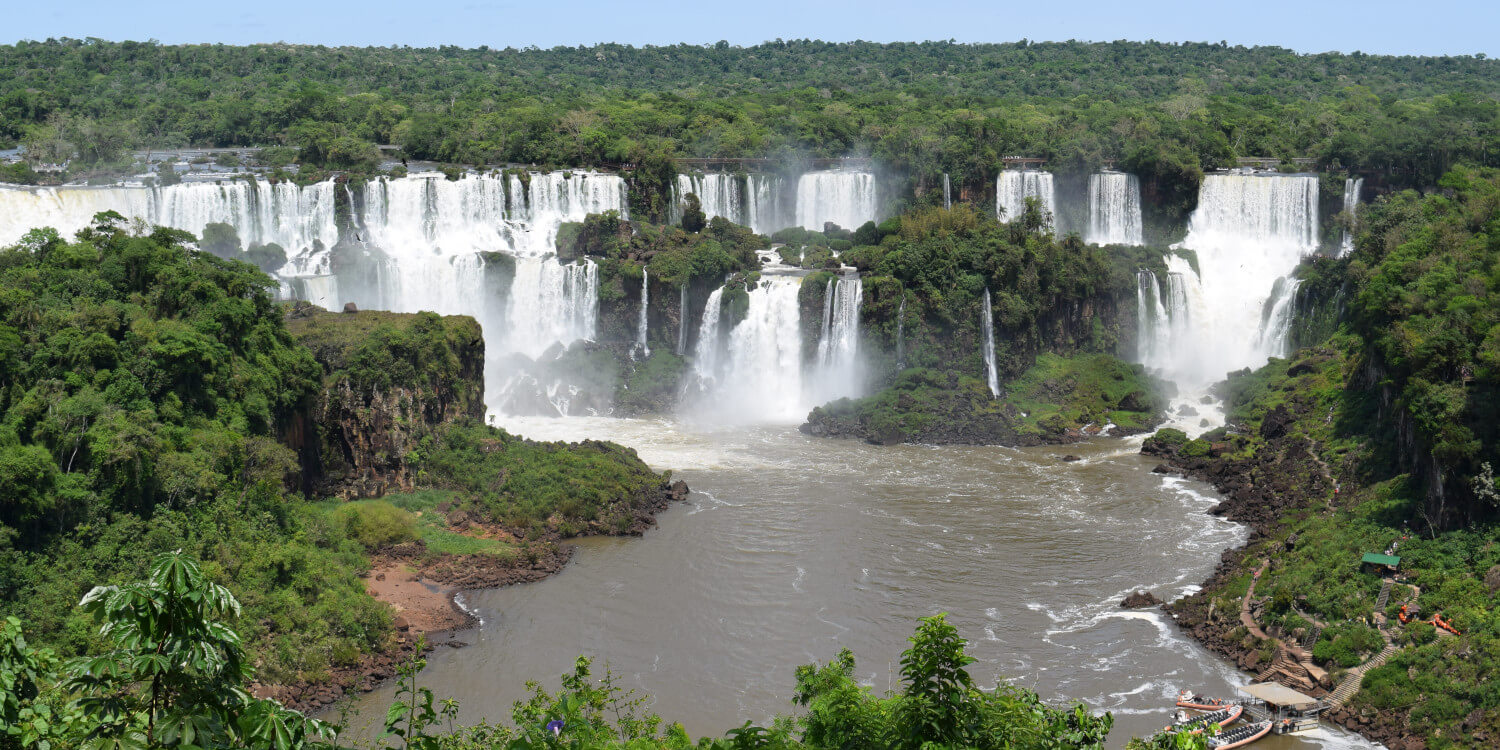Foz do Iguaçu to become first halal certified city in Brazil
In an attempt to attract more Muslim visitors, Foz do Iguaçu aims to become the first halal-certified tourist destination in the Americas.
Sao Paulo: Situated on the border with Paraguay and Argentina, Foz do Iguaçu is home to the world’s largest waterfalls. A Unesco World Heritage Site, the Iguaçu Falls extend over 2,700 metres, three times wider than Niagara Falls.
Thanks to this force of nature, the city of some 250,000 inhabitants attracts more than 2 million visitors a year. Yet, among them are very few tourists from the pre-dominantly Muslim Arab world and Far East. A halal certificate could help change this.
“It was an idea of Jihad Abu Ali, Director of International Relations at the Foz municipality, which was immediately embraced by the mayor and Paraná state governor,” said Ali Saifi, CEO of certification body Cdial Halal.
Launched at the end of last year, a commission representing stakeholders from across the tourism sector has been established. The certifying process could take up to a year.
“The aim is not to change Foz do Igauçu, but to adapt the city,” Saifi said by phone from Lebanon. “Foz receives the whole world. Our aim is to teach the city how to also receive Muslims.”
If there is one city in Brazil that has the culture and infrastructure to do so it is Foz do Igauçu - locally referred to as Foz - as some 25,000 of the city’s inhabitants are Muslims of mainly Lebanese, Syrian and Palestinian descent. In Foz you will find kafta and kebab on every corner, while the city’s Omar Ibn Al-Khattab mosque is the largest in South America.
“We will be mainly training people working in the tourism sector,” said Saifi. “Food is important of course. Restaurants should have halal options, for example. Hotels should not serve pork or wine, and ensure there can be no contamination in the kitchen.”
“But there are also things like how to deal with women wearing a niqab or veil and ensure they have certain privacy,” he added. “How the local airport can welcome Muslim travellers and how hotels can offer transport to the mosque [is also important].”
Local tour agency Patrik Dinis already offers an “Arab itinerary” for tourists visiting Foz do Iguaçu and Ciudad del Este, a tax free shopping hub just across the border in Paraguay.
Over the past decade the number of tourists visiting Brazil increased from 5.1 million in 2010 to 6.3 million in 2019. Due to COVID-19 the number plummeted to some 2.1 million in 2020. There are hopes that Foz do Iguaçu will be able to attract some of the continent’s estimated 4 million Muslims, of which 700,000 live in neighbouring Argentina, according to the World Bulletin. Brazil is home to over 1.5 million Muslims.
More than half of foreign visitors to Brazil stem from neighbouring countries in South America, while about a third come from Europe and some 10% from the US. Less than 5%, some 300,000 people, come from the whole of Asia.
Most Brazilians holiday within their own country. According to OECD Tourism and Trends 2020, the domestic market in 2015 consisted of 206 million trips and still had “a high potential for growth.”
Brazil is considered the tourism powerhouse of South America and it the reason why the United Nations World Tourism Organisation in January decided to locate its Americas headquarters in the country.
With the COVID-19 pandemic increasingly under control in Brazil and the rest of the world, airliners such Etihad, Qatar Airways and Emirates by the end of last year resumed their direct flights to Brazil.
“When Arabs fly to Brazil, they mostly visit Rio do Janeiro and São Paulo,” said Saifi. “We hope a halal-certified Foz will help change that and that in the future other Brazilian cities follow suit. We are already talking to representatives of the state of Minas Gerais to embark on a similar path.”
© SalaamGateway.com 2022. All Rights Reserved
